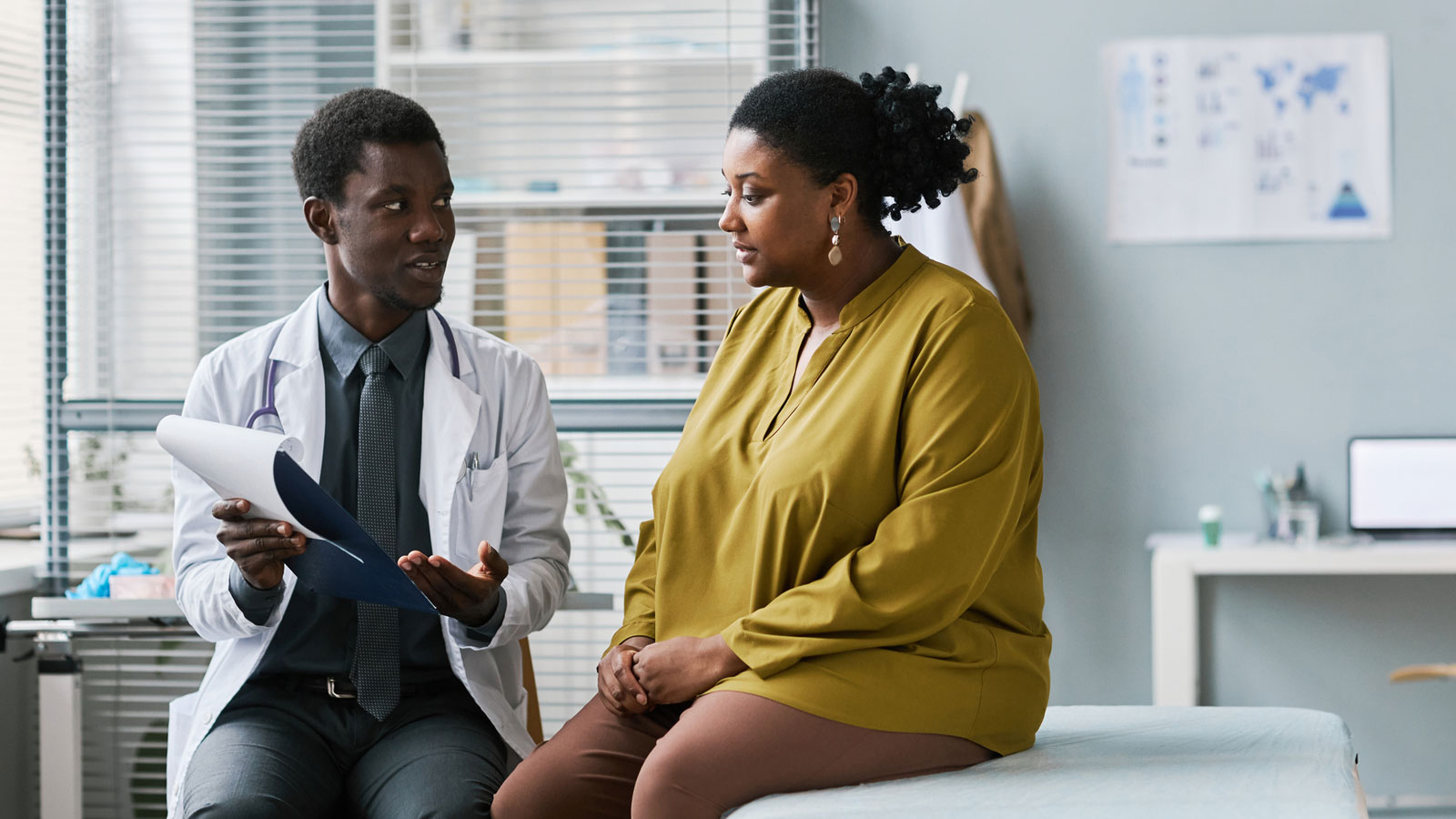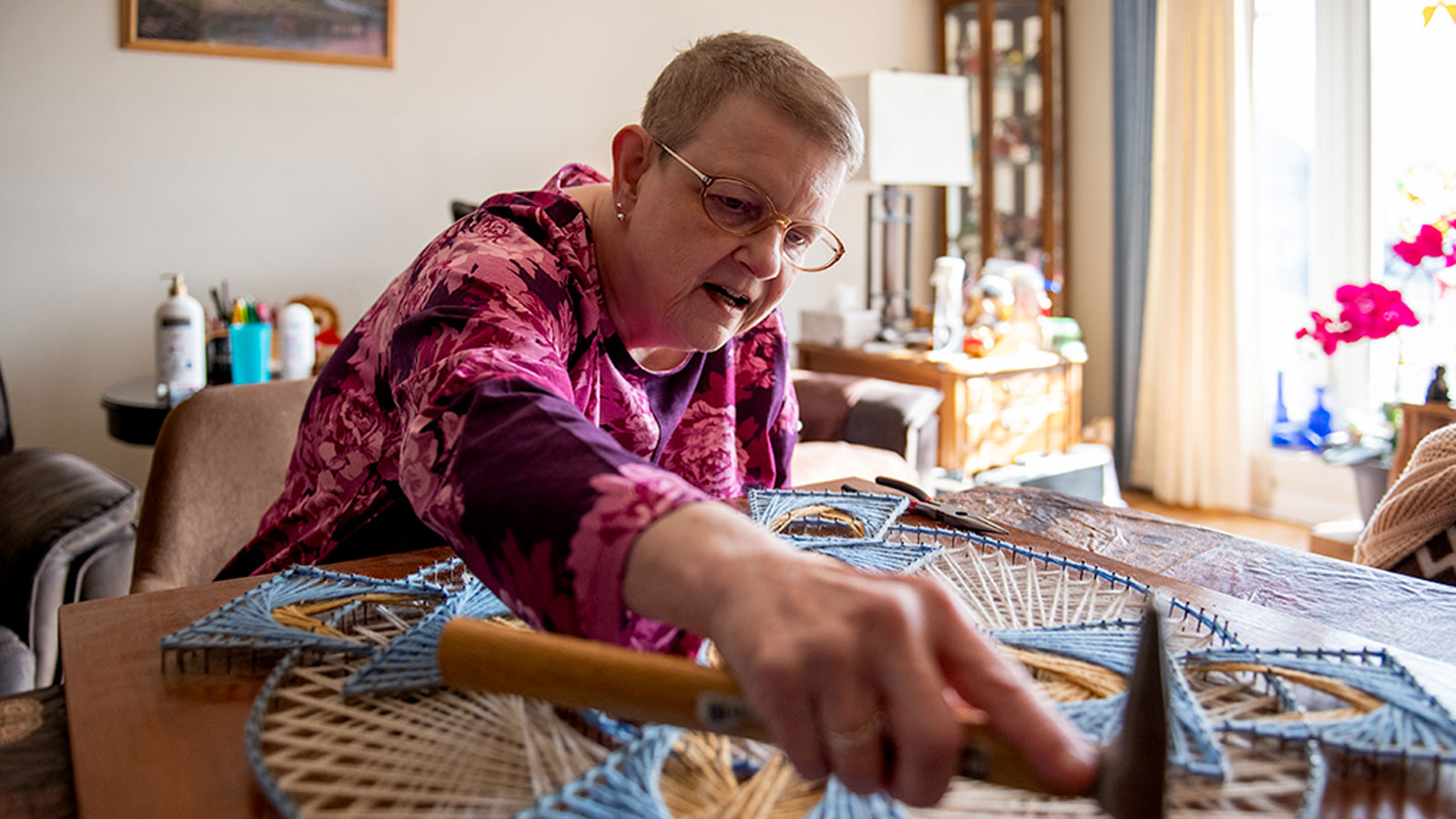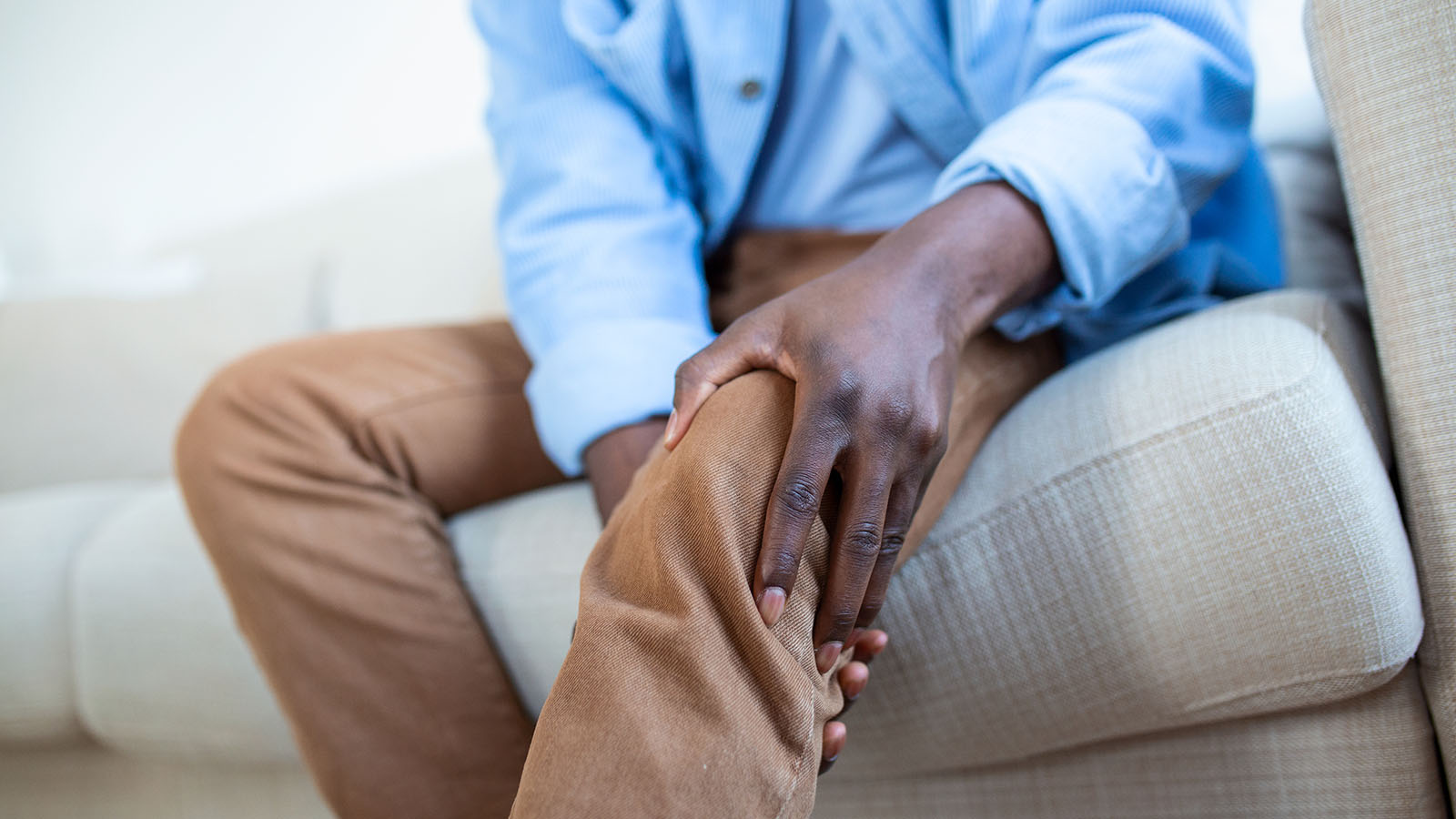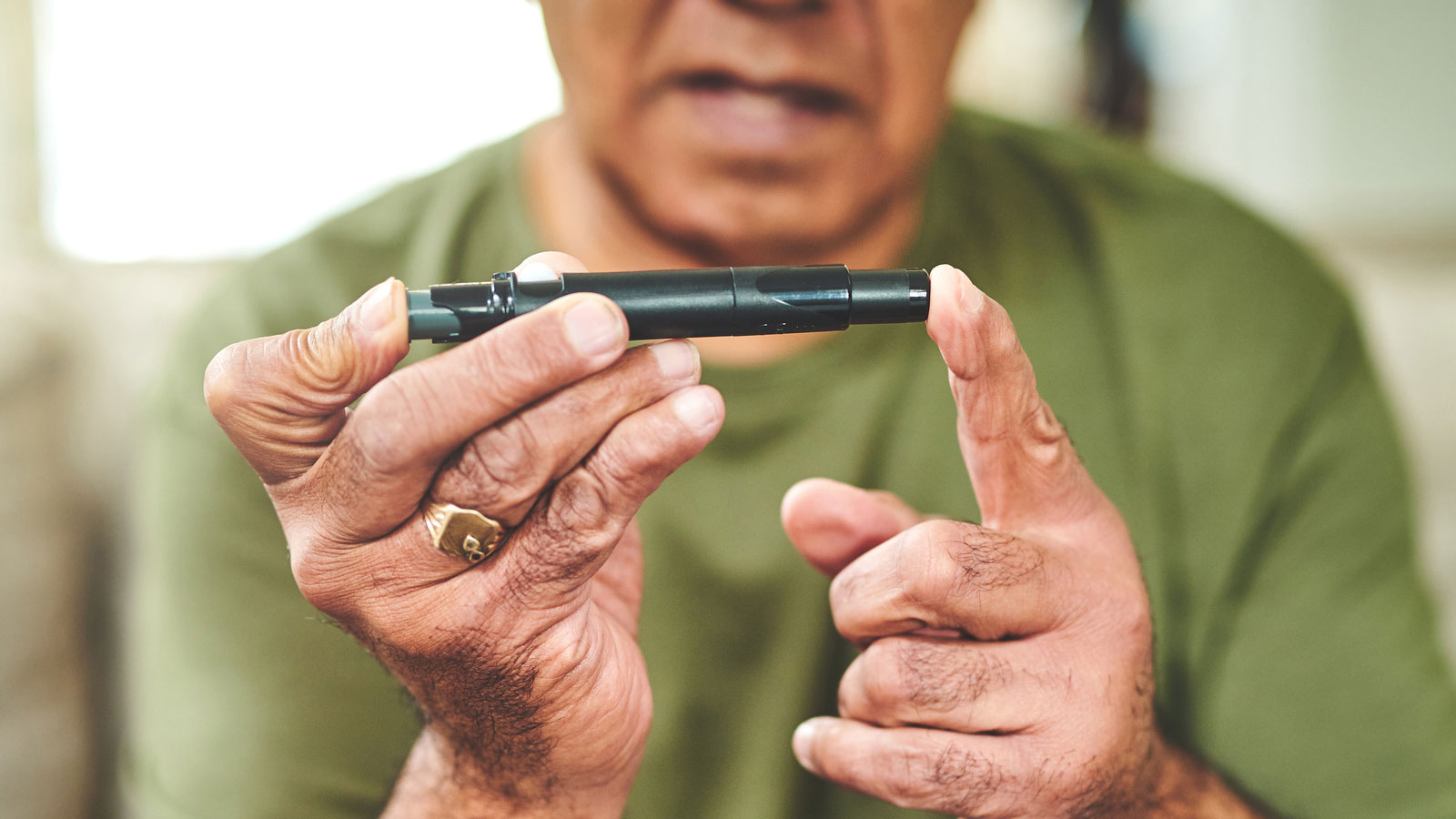Robotic Hernia Surgery Combines Innovative Techniques with Faster Recovery Times
Thanks to innovations in robotic technology, robotic-assisted hernia repairs can be performed through tiny incisions. The result is less overall tissue damage, less pain, and a faster recovery time.

By Gregg Baranski, MD, Surgeon—Virtua Surgical Group
Hernia surgery used to result in a slow, painful, difficult recovery. Not anymore.
Thanks to innovations in robotic and minimally invasive approaches, surgeons can perform hernia repair surgery through tiny incisions rather than the large incisions associated with traditional open surgery. The result is less damage to surrounding tissues, less pain for the patient and a much faster recovery—often within days.
Robot-assisted surgical techniques have been used for years to provide advanced treatment for cancer, as well as heart, urologic, and gynecologic conditions. Today, general surgeons apply the same technology to other types of procedures, including hernia repair.
Robotic surgery is used to treat all types of hernias, including:
- Inguinal and femoral (inner and outer groin)
- Umbilical (belly button)
- Incisional (previous surgery sites)
- Hiatal (reflux/GERD/upper stomach)
What Causes Hernias?
Hernias are caused when an organ squeezes through a tear or weak spot in the tissue that surrounds it. Common locations for hernias include the groin, belly button, and previous surgery scars. Hernia repair surgery involves returning the organ to its proper place and fixing the tears in the surrounding tissue.
Why Robotic Hernia Surgery Is the Better Option
Robotic surgery provides a number of advantages over traditional open surgery and standard laparoscopic procedures. While open surgery offers a full view of the abdomen and the ability to work freely inside the affected area, it requires a large incision through muscle and tissue. This type of incision can be more painful and take longer to heal.
Laparoscopic minimally invasive surgery uses small incisions, but the instruments and surgeon’s visibility are limited.
The robotic surgery system, which is controlled by the surgeon at all times, uses tiny instruments and 3D cameras to precisely repair the affected area.
The advantages of robotic surgery include:
- A smaller incision. An incision that is about the size of a pencil eraser reduces scarring, recovery time, blood loss, and risk of infection.
- Better visibility. Using a high definition, 3D camera provides the surgeon with better visibility than laparoscopic minimally invasive surgery.
- Increased precision. The wristed robotic arms have a greater range of motion than a human hand. This allows the surgeon to maneuver instruments in ways that deliver the best surgical results.
How Patients Benefit From Robotic Hernia Surgery
Because of robotic technology, many patients experience significantly less pain after surgery and return to normal activity much more quickly. In fact, 90% of our surgical hernia repair patients go home the same day.
Robotic hernia surgery can benefit almost anyone. This includes first-time hernia repair patients and people who need hernia revision surgery. It’s appropriate for the most common to the most complex hernia procedures.
Many of our hernia revision patients are especially pleased when they experience the benefits of robotic surgery. Often, they’ve had a long recovery and other problems after traditional open surgeries or laparoscopic procedures. After robotic repair, they can’t believe how good they feel and how quickly they’re able to resume their normal activities.
Don’t Postpone Your Hernia Surgery
Years ago, many people would put off hernia repairs because they were worried about pain and lengthy recovery times. Such delays can lead to dangerous complications and emergency surgeries. With such advanced technology, there’s no reason to put off hernia surgery.
If you need a hernia repair, talk to your doctor. Or, call 888-847-8823 to make an appointment with a Virtua surgeon specializing in robotic-assisted procedures.
There's So Much More to Explore
Discover expert insights, inspiring stories, health tips, and more by exploring the content below!

At-Home Colon Cancer Tests vs. Colonoscopy: Which Screening Option Is Right for You?

8 Signs It's Time to See a Gastroenterologist

How the Unique Stages of a Woman's Heart Affect Her Health

How Weight-Loss Surgery Can Improve Diabetes, Heart Health, and More

Knee Replacement Rehab: 7 Exercises to Restore Your Strength and Range of Motion

COPD vs. Asthma: Understanding the Difference in Symptoms

Bioidentical Hormone Replacement Therapy Pellets: Relief for Menopause and Andropause Symptoms

Why Is Sex Painful During Pregnancy? Pelvic Congestion Syndrome Explained

Don't Drink Alcohol? You Could Still Get Fatty Liver Disease

What Is the Difference Between Palliative Care and Hospice Care?

How to Exercise Safely with Asthma: Tips, Triggers, and Rescue Inhaler Use

How to Relieve Bloating Fast: Simple Tips for Quick Comfort

How to Tell the Difference Between Cold, Flu, and COVID-19

Jill Travels From Delaware to South Jersey for Advanced Lung Care

4 Exercise Tips to Help You Reverse High Blood Pressure

From Exhaustion to Empowerment: Tracy's Hormone Replacement Therapy Success Story

Why on Earth Am I Always So Cold?

Timely Heart Care During a Heart Attack Helps Joe Feed the Community

Allegra Is Thriving With Crohn's Disease

The Best and Worst Foods for Acid Reflux

How to Manage IBS Symptoms and Feel in Control Again

5 Types of Lung Disease: Symptoms, Causes, and Prevention Tips

Foods to Enjoy and Avoid for GLP-1 Heartburn

3 Reasons Why Now's the Time to Find Relief From Varicose Veins

Baseball Coach Turns Male Breast Cancer Surprise into Personal Mission

The Brain Health Checklist: 11 Questions Everyone Should Ask

From Caregiver to Patient: Robotic Surgery Relieves Teresa's Knee Pain

How to Get and Stay Healthy This Fall

How to Reverse Prediabetes and Prevent Type 2 Diabetes

Young Breast-Cancer Survivor Has New Hope for Healthy Future

Is Cancer Hereditary? What You Need to Know About Your Genetic Risks

Tara's Story: From Debilitating Uterine Fibroid Pain to a Half-Marathon Medal

Is Your Post-Pregnancy Belly Bulge a Sign of Diastasis Recti?

IBS and Alcohol: Can You Still Enjoy a Drink?

Focus on Mental Health Is Key Part of Andrew's Weight-Loss Journey

What You Need to Know About Epilepsy

'Feeling Joy Again': ECT Brain Stimulation Therapy Restores Ashley's Well-Being

Not Just for Wrinkles: Botox Injections Promote Improved Bladder Control

Robotic Hysterectomy, Trusted Care Help Bobbi Shine Again

How to Stay Cool and Prevent Heat Illness All Summer Long

What Happens to Your Body When You Don't Get Enough Sleep?

5 Key Facts About Proton Therapy for Cancer Treatment

Mood Swings vs. Mood Disorders: Know the Signs and Get Help
Are emotional ups and downs disrupting daily life? Learn common signs of mood disorders, and when to talk to a doctor about diagnosis and treatment options.

4 Foolproof Pelvic Floor Strengthening Exercises for Women

What to Expect During Perimenopause

Protect Yourself From Tick Bites and Lyme Disease

6 Tips to Tame Your Spring Allergies

Do You Know the Signs and Symptoms of Uterine Fibroids?

How Are Uterine Fibroids Treated?

What to Expect From a Robotic Hysterectomy

When You Need A Hysterectomy Know Your Options

How Do You Manage the Side Effects of Weight-Loss Medications?

A Woman’s Four-Step Guide to Fight Back on Back Pain

What You Need To Know About Carpal Tunnel Syndrome

The Truth About Menopause, Weight Gain, and Belly Fat

Shedding Light on Lesser-Known Menopause Symptoms and Solutions

Debunking The Myths About Vaginal Dryness
Inside Look at Blood Vessels Aids PAD Treatment
Denise Davis: Pay Attention to Your Heart Health

What You Need To Know About Stroke Treatment

Prayers Answered: Pastor Gatling on New Mission After Kidney Transplant

10 Smart Ways to Manage Your Diabetes

Signs You May Have Chronic Kidney Disease

5 Essential Winter Foot Care Tips When You Have Diabetes

Rare Kidney Autotransplant Gives Patricia More Time With Family

Sweet Music: Trust, Teamwork Save Justin from Heart Attack

Advanced Minimally Invasive GYN Surgery Puts You at the Center of Care

Complex Heart Surgery Nets James a Lifelong Friend

Hepatitis C Kidney Transplant a Blessing For Lee Manns
Special Delivery Organ Transplant Gives Amazon Employee Second Chance

7 Reasons Why You Want Your Surgeon to Be an Expert in Robotics

Colitis Symptoms Under Control, Jennifer Is ‘Living My Best Life’

How Do I Care for a Wound that Won't Heal?

Five Back Pain Risk Factors That You Should Know

Is My Back Pain Normal, or Is It Spinal Stenosis?

Augmented-Reality Surgery Has Bobby Back on Stage, Rocking His New Hip

Robotic Hernia Surgery Combines Innovative Techniques With Faster Recovery Times

How Does Breast Density Affect Your Mammogram?

Menopause: New Insights Into the Power of Hormone Replacement Therapy

Signs You Should Get Treated For Vein Problems

One New Heart Valve Saves Two Lives in the Tritten Family

What You Need to Know About Heart Failure
Lung Valve Surgery Relieves COPD, Emphysema Symptoms

Lung Screening, Robotic Technologies Get Pat Kicking Up Her Boots Again

Breast Cancer Diagnosis Inspires Catherine to Help Others

Jasmine’s On-Air and Pain-Free After Gallbladder Surgery

When Should I See a Doctor About My Knee Pain?

Quick Action Leads to Jesse's Recovery From Stroke

A Non-Athlete’s Guide to Shoulder Overuse Injuries
Shoulder problems aren’t limited to athletes. Virtua orthopedic surgeon Sean McMillan, DO, explains shoulder overuse injuries and prevention in this article.

Put Lower Back Pain Behind You With This Ten-Step Guide

Wide-Awake Hand Surgery Speeds Recovery, Puts Control in Patients' Hands

South Jersey Veteran Thrives After Cross-Country Kidney Donation

3 Ways to Avoid Knee Pain

When Should I See a Doctor for My Hip Pain?

When Should I See a Doctor About My Shoulder Pain?

Is My Back Pain Normal, or Is It Sciatica?

Is My Back Pain Normal, or Is It a Herniated Disk?

When Is It Back Pain, and When Is It Something More?

Watchman Heart Device: a Technological Breakthrough for Blood Clot Prevention

Albert's Emergency Cardiac Surgery Is a 'Story of a Lifetime'

What Can I Do Right Now About My Aching Back?

How Do I Get Rid of This Back Pain for Good?

Can Your Gut Health Affect Your Heart?

When Should I Be Worried About My Neck Pain?
Advanced Heart Failure Therapies Get Bernadine Back to Full Speed

Sarah Wins Back Her Health After Crohn's Disease Diagnosis

Overcoming Addiction, Philip Now Sees More Positive Side to Life
Firefighter's Successful Lung Cancer Care at Virtua
A Lung Screening Put Teresa Back in the Race

A Breast Self-Exam Saved Kristen's Life

Early Treatment is Best to Relieve Hemorrhoid Symptoms

The Top 10 Foods For A Healthy Diabetes Diet

Keeping the Beat: Advanced Heart Surgery for Aortic Aneurysm

Are You At Risk For Chronic Kidney Disease

Local Pastor Makes Kidney Health Mission of Ministry

What’s the Difference Between Type 1 and Type 2 Diabetes?

Is This the Right Time in Your Life for Bariatric Surgery?

All for Bear: Dan Loses Weight to Be His Son’s Kidney Donor

Hyperbaric Wound Therapy Puts Joette Back in Motion

Robotic Hernia Repair Renews David's Active Lifestyle

